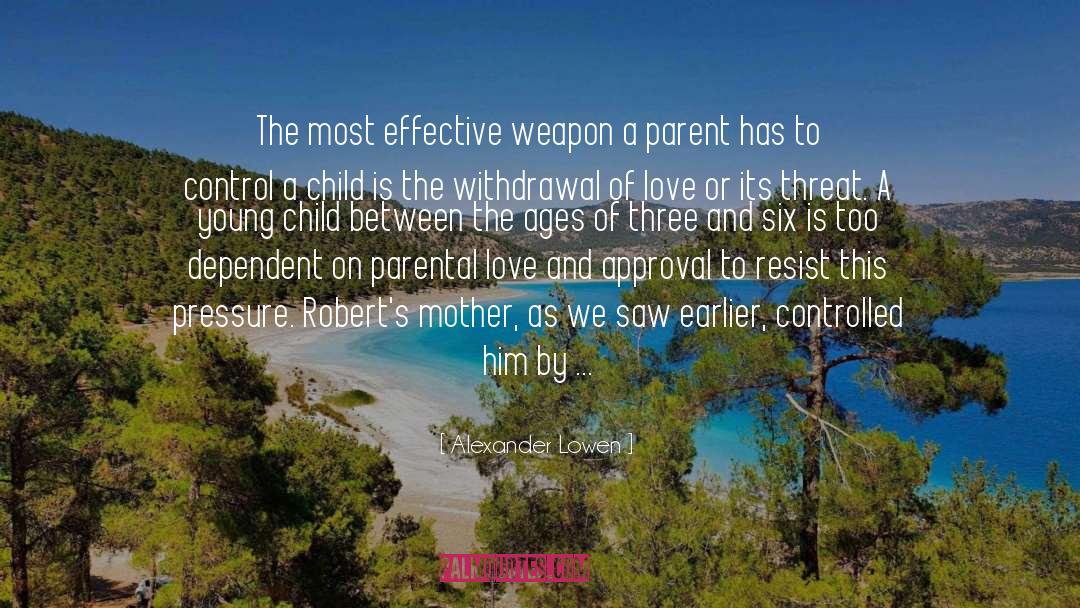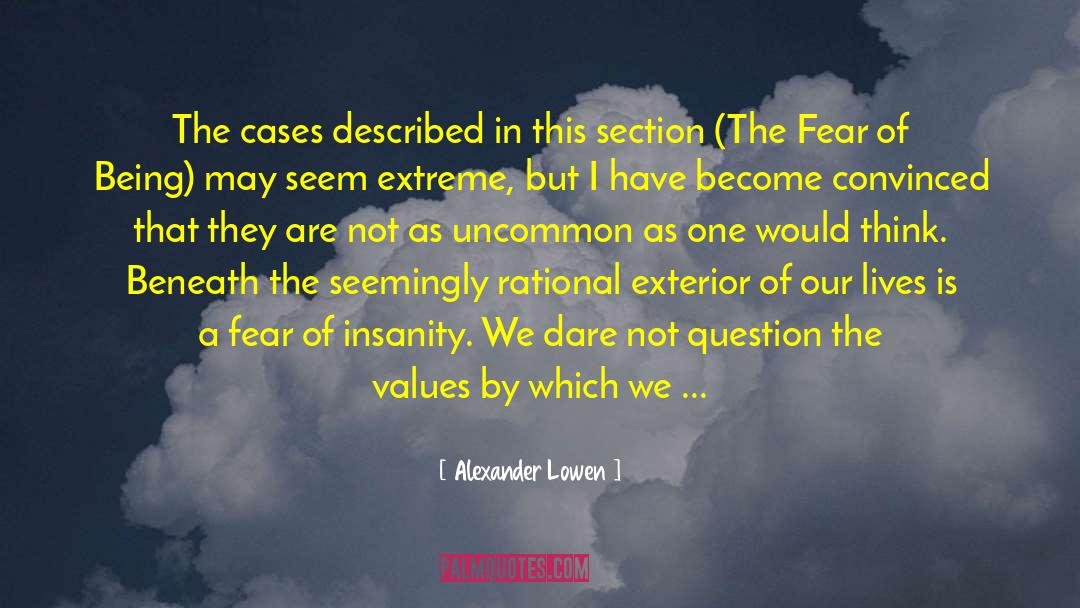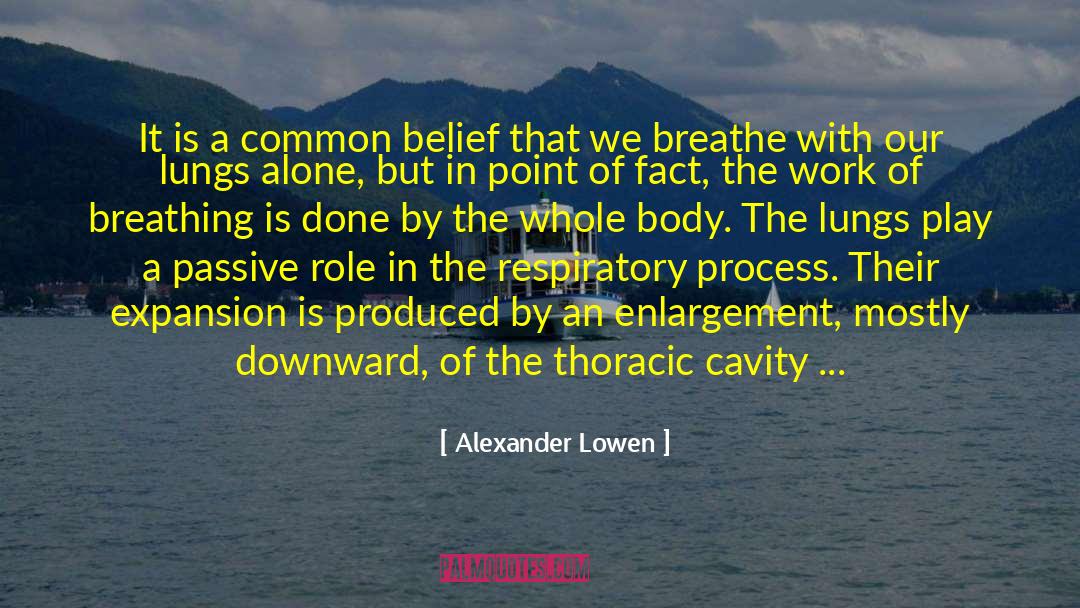Quotes About Bioenergetics
Enjoy collection of 3 Bioenergetics quotes. Download and share images of famous quotes about Bioenergetics. Righ click to see and save pictures of Bioenergetics quotes that you can use as your wallpaper for free.
The most effective weapon a parent has to control a child is the withdrawal of love or its threat. A young child between the ages of three and six is too dependent on parental love and approval to resist this pressure. Robert's mother, as we saw earlier, controlled him by "cutting him out." Margaret's mother beat her into submission, but it was the loss of her father's love that devastated her. Whatever the means parents use, the result is that the child is forced to give up his instinctual longing, to suppress his sexual desires for one parent and his hostility toward the other. In their place he will develop feelings of guilt about his sexuality and fear of authority figures. This surrender constitutes an acceptance of parental power and authority and a submission to the parents' values and demands. The child becomes "good", which means that he gives up his sexual orientation in favor of one directed toward achievement. Parental authority is introjected in the form of a superego, ensuring that the child will follow his parents' wishes in the acculturation process. In effect, the child now identifies with the threatening parent. Freud says, "The whole process, on the one hand, preserves the genital organ wards off the danger of losing it; on the other hand, it paralyzes it, takes its function away from it. ~ Alexander Lowen

The cases described in this section (The Fear of Being) may seem extreme, but I have become convinced that they are not as uncommon as one would think. Beneath the seemingly rational exterior of our lives is a fear of insanity. We dare not question the values by which we live or rebel against the roles we play for fear of putting our sanity into doubt. We are like the inmates of a mental institution who must accept its inhumanity and insensitivity as caring and knowledgeableness if they hope to be regarded as sane enough to leave. The question who is sane and who is crazy was the theme of the novel One Flew Over The Cuckoo's Nest. The question, what is sanity? was clearly asked in the play Equus.
The idea that much of what we do is insane and that if we want to be sane, we must let ourselves go crazy has been strongly advanced by R.D. Laing. In the preface to the Pelican edition of his book The Divided Self, Laing writes: "In the context of our present pervasive madness that we call normality, sanity, freedom, all of our frames of reference are ambiguous and equivocal." And in the same preface: "Thus I would wish to emphasize that our 'normal' 'adjusted' state is too often the abdication of ecstasy, the betrayal of our true potentialities; that many of us are only too successful in acquiring a false self to adapt to false realities."
Wilhelm Reich had a somewhat similar view of present-day human behavior. Thus Reich says, "Homo normalis blocks off entirely the perce ~ Alexander Lowen

It is a common belief that we breathe with our lungs alone, but in point of fact, the work of breathing is done by the whole body. The lungs play a passive role in the respiratory process. Their expansion is produced by an enlargement, mostly downward, of the thoracic cavity and they collapse when that cavity is reduced. Proper breathing involves the muscles of the head, neck, thorax, and abdomen. It can be shown that chronic tension in any part of the body's musculature interferes with the natural respiratory movements.
Breathing is a rhythmic activity. Normally a person at rest makes approximately 16 to 17 respiratory incursions a minute. The rate is higher in infants and in states of excitation. It is lower in sleep and in depressed persons. The depth of the respiratory wave is another factor which varies with emotional states. Breathing becomes shallow when we are frightened or anxious. It deepens with relaxation, pleasure and sleep. But above all, it is the quality of the respiratory movements that determines whether breathing is pleasurable or not. With each breath a wave can be seen to ascend and descend through the body. The inspiratory wave begins deep in the abdomen with a backward movement of the pelvis. This allows the belly to expand outward. The wave then moves upward as the rest of the body expands. The head moves very slightly forward to suck in the air while the nostrils dilate or the mouth opens. The expiratory wave begins in the upper part of the body ~ Alexander Lowen

